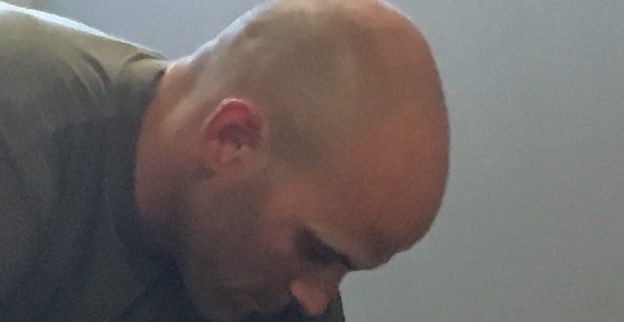Ashley Thompson | Features Writer
In the last two years, sexual assault in the military has increased; however, the Department of Defense reports only 25 percent of the estimated 20,300 service members sexually assaulted reported the incident to the Sexual Assault Prevention and Response office of the Department of Defense or law enforcement. The assaults vary from harassments, violent behaviors and rapes.
“These offenders may be a predator in the night, but morning is coming. Someone is going to tell and that offender will be brought to justice,” 101st Airborne Division Sexual Harassment/Assault Response Coordinator Sergeant Keyona Thomas said.
The Sexual Assault Response Team (SART) presented a film and discussion over sexual violence in the U.S armed forces on Thursday, Sept. 22. The film, “The Invisible War,” focused on veterans who were victims of sexual violence in different military branches. These victims included both women and men.
“One of the things I’ve learned in my many years of training on sexual abuse is that a lot of people think that it’s only male-on-women,” senior HPP major and 11-year Army medic Timothy Goodale said. “But a lot of it is male-on-male violence as well. It doesn’t just happen to women.”
SART invited members from APSU’s campus as well as Ft. Campbell to discuss the issue of sexual violence at the film showing.
“When I heard SART was going to show this film, I knew it was a good opportunity to invite Ft. Campbell’s SART to help educate on sexual assault, especially with APSU having a large military community.” Equal Employment Opportunity Compliance Officer and Investigator at APSU Steven Grudzinski said. “I believe that when a person volunteers to join the military they are volunteering to place the lives of others before their own. As a service member, in many instances we place our lives in the hands of complete strangers and trust them to protect us as we would them.”
Grudzinski said close bonds form in military regiments, and sexual assaults severely damage such relationships.
“We develop a family-like relationship unlike any other occupation, and when that relationship is violated by sexual assault or rape it has a lifelong effect and breaks down the very foundation of our profession. A military unit is a very tight knit community that depends heavily on cohesion and once that cohesion is broken the unit becomes less effective, mistakes are made and people are hurt or worse,” he said.
Because of such a large military community, Ft. Campbell’s SART works to make sure every victim or potential victim is supported and educated, according to Thomas.
“We care for each and every victim that we come across,” Thomas said. “SART wants the word to get out that the program has changed drastically over the last six to seven years and the military does not take sexual violence lightly.”
SART hopes the education they provide will decrease sexual violence, both in the military and in society. The team educates APSU’s ROTC students on sexual assault during their classes.
“We have to take training every semester over it and it is something the program stresses,” senior communications major Lee Norman said.
SART played the film “The Invisible War” in hopes of furthering that education to college students who are in a similar atmosphere as active military personnel. Both groups range from 18 to 24-year-olds under stressful atmospheres and frequent alcohol use. Due to these conditions, SART thinks it is important to see both these audiences educated on what to do in these scenarios as well as how to avoid the issue increasing.
“I didn’t know exactly what it was going to be about when I saw the name “The Invisible War” but once I saw the video I thought what was going on was very sad. In a place that’s so organized you would think it wouldn’t happen but it does,” junior forensic chemistry major Allysa Bougard said.
SART believes furthering student’s education is a way to open citizens’ eyes to the topic of sexual assault.
“The only way to stop it is to talk about it. Sexual violence and assault destroys more than just the physical. The emotional damage caused can last a lifetime and affect every aspect of our lives. It creates hatred and paranoia,” Grudzinski said. “Unfortunately some people weren’t raised in homes and communities that instilled family values and taught respect for your fellow man and woman, so we must take upon ourselves to pick up the slack.”
Grudzinski said we “must teach that this behavior will not be tolerated and that it must be reported if we are to hold perpetrators accountable. Awareness is the key, and with an issue such as sexual assault, […] sporadic pondering won’t cut it. Specific action is needed.”





